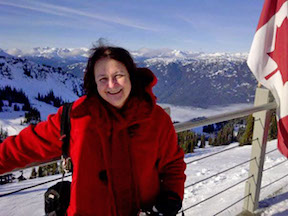- Against what background and set of assumptions about Florence Nightingale's role in the Crimea is this essay written? Why do you think Nightingale was chosen as his only female "eminent Victorian"?
- What are some features of Strachey's style? What are its desirable or undesirable features?
- Are Strachey's points aided by irony? How does Strachey obtain some of his humorous effects?
- How does Strachey respond to what he perceives as overintense or neurotic features of Florence Nightingale's behavior? (paranoia, demandingness, need for authority, pride)
- Is the use of metaphor important to Strachey's effects? What are some examples of this trait?
- What are the chief objects of Strachey's iconoclasm within this essay? (myth of the Victorian lady, Victorian public opinion, heedless stupidity of bureaucracy, official smugness, sentiment toward Queen, religion and its officials)
- To what extent is his attitude toward Florence Nightingale sympathetic? For what does he condemn her? What is his final assessment of her life? (sympathetic to her work, hostile to her religion, neutral toward her psychological intensity)
- What methods does he use to build sympathy for Nightingale?
- In his preface, what does Strachey claim are his goals in writing Eminent Victorians? Do you believe he accomplishes his goals here?
- How does Strachey treat the question of Nightingale's response to sexuality and marriage? Later biographers such as Woodhull and Pickering have suggested that she may have had lesbian impluses--is this a line of thought which interests Strachey, himself homosexual?
- What seems to be Strachey's view of religion, and how does this affect the essay? (hostile, distorts chronology)
- Are there places in the essay in which Strachey seems to imply a reversal of conventional sex roles? If so, what is Strachey's attitude toward this?
- How might one explain Florence Nightingale's anger at the alleged fickleness of her own sex?
- Does Strachey anticipate later biographers' interpretation of her illnesses as at least in part psycho-neurotic?
- Is Strachey fair and accurate in attacking Nightingale for a lack of skill at generalization and lack of scientific knowledge?
- Does he give convincing evidence of her final decline into benevolent senility?
- How does the essay end, and what point does this reinforce?
- Do you think this is a well-written biographical sketch? How does it differ in manner and tone from conventional Victorian biography? What are the merits of these radical departures?
- What is his final assessment of her life? What qualities in her does he most respect?
- Are there elements of Nightingale’s character or achievements which Strachey has downplayed? What opinions do modern historians/feminists hold on her character and claims? By contrast, unlike Strachey the standard Victorian biography, E. T. Cook’s The Life of Florence Nightingale (1913), does not see Nightingale as responsible for the deaths of Sidney Herbert and Clough, and instead emphasizes her grief over their loss. Also Cook passes quickly over her later senility. He is at times a little troubled by her aggressiveness of expression.
- How might one mount a defence of Florence Nightingale's life and character? Why sorts of information or evidence might help in this case?
- Lytton Strachey was born into an eminent intellectual family, and his mother, one of his sisters and a sister-in-law were active in promoting women's suffrage and other feminist causes. What effect do you think his background and associations may have had on his assessments of Nightingale's views and character?
Eminent Victorians (1918)
What seems unusual about Strachey’s biographical style? What are some of its features? What are its advantages and limitations?
--use of humor, sarcasm, distancing irony, metaphor
How does Strachey obtain his humorous effects?
Against what modes of biography is Strachey reacting? (hagiography, focus solely on the public or external life—Strachey seeks to understand psychological motivation)
What are some limitations of this approach?
--By inverting hagiography, as it were, simplifies complexities of work and motivation
--not developmental, fails to attempt to explain origins of personality
Do you agree with Strachey’s claim that autobiographies should be short?
Are there ways in which these four essays might be interpreted as autobiographical? (Strachey has been shaped by a culture defined by religious, military, and educational institutions which he found narrow; in the case of Nightingale, Strachey is more ambivalent, but dislikes the sentimental mythology which has replaced her actual persona.)
Dr. Arnold
Why would Arnold have seemed an appropriate subject for reevaluation? (honored for his role as headmaster of Rugby, as presented in Thomas Hughes’ hagiographic Tom Brown’s School Days)
How is the sequence of narration designed to affect our opinion?
To what extent does this portrait resemble the others in Strachey’s volume?
What are Strachey’s charges against Dr. Arnold? Are his methods of argument and conclusions fair? (avoids placing Arnold’s views in context of those of others of his time)
Cardinal Manning
How does the tone of the Nightingale biography differ from that of Cardinal Manning?
Why do you think Cardinal Manning was chosen as a representative “eminent Victorian,” rather than, say, an Anglican archbishop? (Catholicism an important strand in late Victorian intellectual life, with several distinguished converts.)
What are Strachey’s charges against Cardinal Manning and how are they substantiated?
--psychosomatic illness
--harshness of middle years and genial kindness of senility—a common enough pattern
--presents his life as a movement form administration to religion, seems inaccurate
Do you feel his methods of assessing Manning are fair?
Does the essay increase in dramatic intensity as it progresses? (narrows to a battle between Newman and Manning)
Why of these two would Strachey have preferred Newman? (major intellectual figure of his day, less narrow in his interests)
General Gordon
What is Strachey’s attitude toward General Gordon? (brash adventurer determined to lead his country into another imperial conquest)
What would have been the conventional view of him? (a courageous hero who died for his country—e. g., Tennyson wrote a poem on his death)
